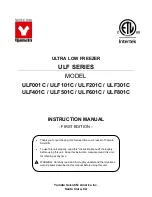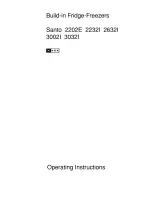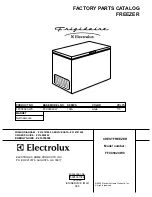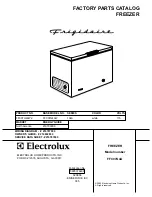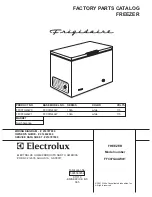
Problem
Possible cause
Solution
Temperature set in the appli‐
ance is too low and the am‐
bient temperature is too
high.
Set a higher temperature.
Refer to "Control Panel"
chapter.
Water flows on the rear plate
of the refrigerator.
During the automatic de‐
frosting process, frost melts
on the rear plate.
This is correct.
There is too much con‐
densed water on the rear
wall of the refrigerator.
Door was opened too fre‐
quently.
Open the door only when
necessary.
Door was not closed com‐
pletely.
Make sure the door is closed
completely.
Stored food was not wrap‐
ped.
Wrap food in suitable pack‐
aging before storing it in the
appliance.
Water flows inside the refrig‐
erator.
Food products prevent the
water from flowing into the
water collector.
Make sure that food prod‐
ucts do not touch the rear
plate.
The water outlet is clogged.
Clean the water outlet.
Water flows on the floor.
The melting water outlet is
not connected to the evapo‐
rative tray above the com‐
pressor.
Attach the melting water out‐
let to the evaporative tray.
Temperature cannot be set. The "Frostmatic function" is
switched on.
Switch off "Frostmatic func‐
tion" manually, or wait until
the function deactivates au‐
tomatically to set the temper‐
ature. Refer to "Frostmatic
function" section.
The temperature in the appli‐
ance is too low/too high.
The temperature is not set
correctly.
Set a higher/lower tempera‐
ture.
The door is not closed cor‐
rectly.
Refer to "Closing the door"
section.
The food products' tempera‐
ture is too high.
Let the food products tem‐
perature decrease to room
temperature before storage.
Many food products are stor‐
ed at the same time.
Store less food products at
the same time.
The door has been opened
often.
Open the door only if neces‐
sary.
ENGLISH
17




































